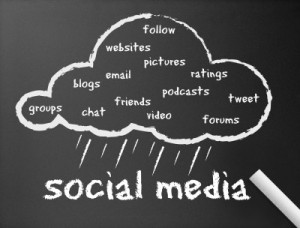Officials want social media behind bars for inciting violence, saying people are using mobile devices to post to Twitter and Facebook–quickly organizing criminal activity.
Background: Since August 4th, the U.K. has been engulfed in civil disturbances and violent demonstrations. Social media use in the U.K. reached historical heights on August 8th, with one in every 170 U.K. Internet visitors going to Twitter and the homepage receiving 3.4 million visits. Officials say social media is being used organize riots, and in a parliamentary address on August 11th, British Prime Minister David Cameron proposed a temporary ban of Blackberry Messenger and social networks.
In Philadephphia, the city set a curfew on August 12th for young people under 18 in an attempt to break up “flash mob” violence that has plagued the city. The “flash mobs” or “flash robs” are organized via social media and text messages, mobilizing hundreds of young people to a specific area where they commit violent acts such as assaulting shoppers and robbing stores.
Issue: How can we regulate social media while also protecting freedom of speech? This is the question being asked around the world, with no clear-cut answer.
The Twitter Problem: Twitter is based in the United States, meaning it protects freedom of expression via the Communications Decency Act and the First Amendment. But, because Twitter is used worldwide, it runs into international laws that blur the line between right and wrong on the Internet.
The Solution: Shutting off cell-phone service and cutting off access to social media sites is a sure way to infuriate the public. Instead, keep social media alive, allowing it to continue transforming the way government and constituents interact, and believing that social media can be used for good. One solution to preventing riots may be to establish a level of identity on the Internet with the idea that people will be less likely to incite crimes if they are not anonymous.
As the question of how to regulate social media remains unclear, Twitter hashtags such as #riotcleanup are popping up, a sign that in the midst of chaos, the positive side of technology can shine through. How do you think social media can be regulated?
**Image via Ubergizmo
This post was first published by Rachel Leamon on March Communications’ blog, PR Nonsense.

